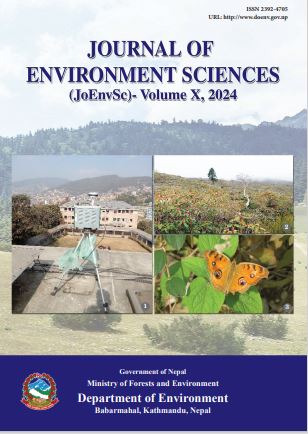Energy Recovery from Municipal Solid Waste by Production of Refuse Derived Fuel
DOI:
https://doi.org/10.3126/jes.v10i1.66979Keywords:
Energy content, Municipal Solid Waste, Refuse Derived FuelAbstract
Waste to energy options can present an opportunity for effective waste management and addressing the energy crisis. This study aimed to produce Refuse Derived Fuel (RDF) from combustible Municipal Solid Waste (MSW), primarily plastics and paper. Cylindrical briquettes were manufactured from shredded raw materials using a screw extruder. The study examined the energy content, physical properties, and proximate analysis of the produced RDF. The briquettes exhibited a high calorific value of 6,736 Kcal/kg. Experimentation on briquette combustion was conducted in a pottery kiln in Thimi, Bhaktapur, revealing that RDF outperformed fuelwood both in terms of quality and quantity. The RDF shows promising potential due to its high calorific value and favorable combustion properties when supplied with air. However, the study recommends further analysis of the combustible characteristics of MSW.




